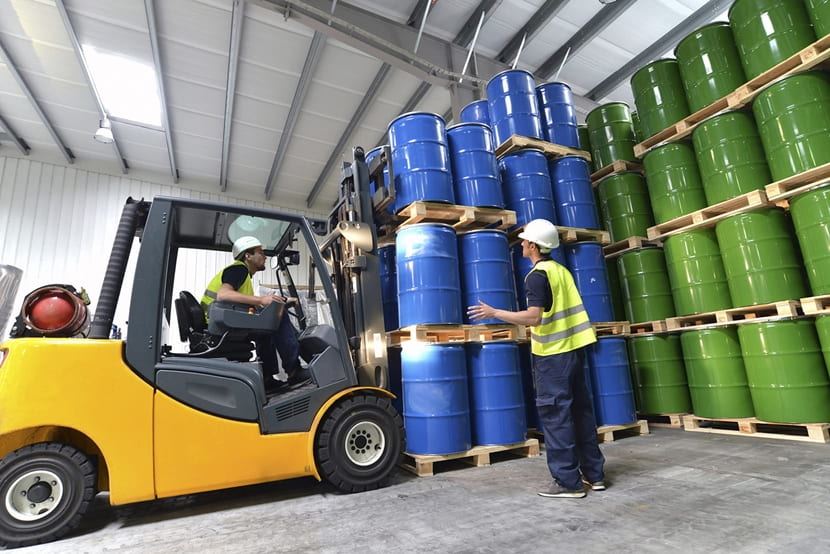Additives for forklift oil: types and action
For the efficient and long-lasting operation of all forklift mechanisms, it is important to use high-quality oils containing additives. Oil additives increase the service life of the lubricant itself, engine components, transmission and hydraulic system.
Types of additives for a forklift
Lubricating fluids with additives for a forklift with an internal combustion engine are poured into 3 different systems: engine, transmission, hydraulics. Manufacturers use additives that may differ in their characteristics and properties depending on the purpose.
The main types of additives used in all types of oils for forklifts:
- Antioxidant. They prevent oxidation and the formation of harmful deposits.
- Durable They form a protective film, reducing friction.
- Antifoam. Ensures effective circulation of lubricating fluid.
- Cleaning ingredients. Retain pollution, prevent their settling on system components.
- Anti-corrosion. They protect metal parts from corrosion.
- Viscosity modifiers. They maintain oil viscosity under different temperature conditions.
- Demulsifying additives. They separate water from the lubricant, prevent the formation of an emulsion that can damage the system.
Depending on the purpose of the lubricant, certain ingredients play a key role. For motor oils, the most important additives are those that determine the viscosity and temperature regime. Hydraulic products must have ingredients that prevent foaming, oxidation, and corrosion. Anti-corrosion, viscous, anti-seize additives are important for transmission lubricant.
How oil additives work
All types of oil additives work together to ensure optimal performance. For example, antioxidant additives protect the lubricant from oxidation under the influence of high temperatures and extend its service life. They prevent the formation of deposits and resins that impair the operation of mechanisms.
Viscosity modifiers are used in all forklift oils. They provide stable viscosity when the temperature changes, which is important for effective work in various conditions and modes.
Antifoam ingredients reduce the amount of air bubbles that disrupt the lubricant and cause the system to overheat. Demulsifying additives are especially important for hydraulic systems. They prevent the oil from mixing with water, which causes corrosion and equipment damage.
Advantages of using additives
The use of oils with quality additives gives significant advantages. The action of additives is aimed at creating optimal operating conditions for forklifts:
- protect parts from wear, corrosion and overheating, increasing the service life of mechanisms;
- systems work more efficiently, improving productivity;
- the wear of parts and the frequency of breakdowns are reduced, reducing the cost of repair work.
Additives improve oil performance at high and low temperatures. This is especially important for forklifts that work in harsh climatic conditions, as well as with constantly higher loads.
Recommendations for the selection of additives
Only with the right choice, all the advantages of additives are fully revealed. It is important to consider the type of oil. Make sure that the additional ingredients in each case are compatible with it. Incompatibility reduces the effectiveness of the lubricant, can lead to damage to the system.
If the loader works in conditions of heat, high humidity, and dust, choose additives capable of protecting the mechanisms, for example, anti-friction and anti-corrosion.
Always follow the manufacturer's recommendations. The use of inappropriate additives risks possible breakdown. Choose products that meet quality standards and have the necessary certificates. Do not skimp on the quality of additives.


